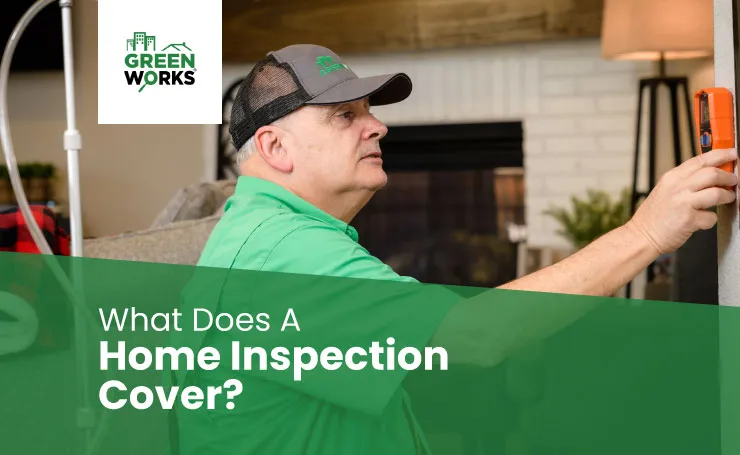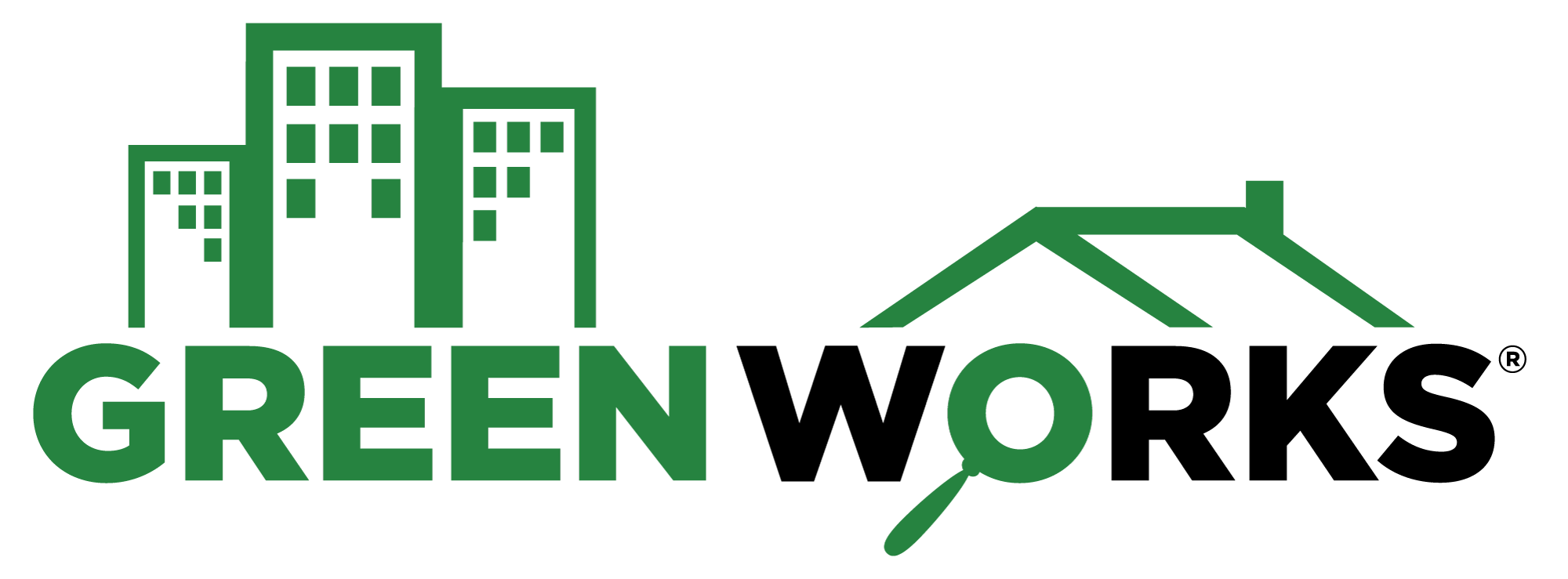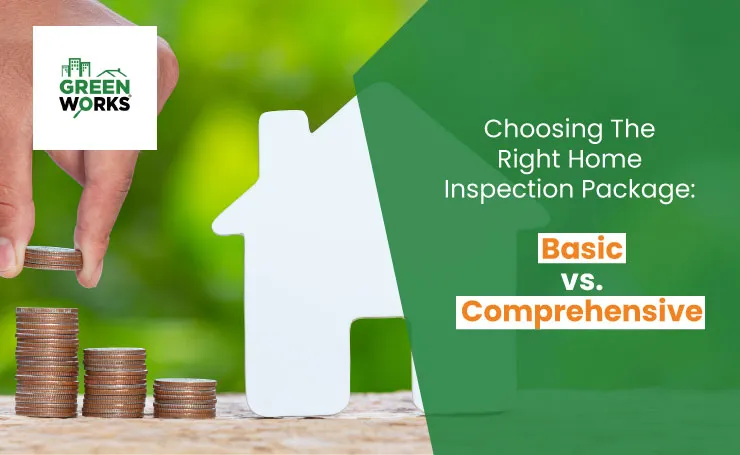Posts

What Does A Home Inspection Cover?
A home inspection in Fort Worth is a vital step in the house-buying process that gives buyers an unbiased assessment of the property’s condition. An expert home inspector performs this inspection, looking at the central systems and parts of the house to look for any problems, maintenance issues, or safety concerns that might affect the property’s value or safety. Among the many areas covered by a house inspection are the roof, foundation, electricity, plumbing, and HVAC systems. As a result, knowing what is covered by a home inspection can help buyers decide about the property they are considering buying.
Foundation issues
The foundation inspection is one of the most important aspects of a home inspection since it provides the primary structural support for the entire house. It is essential to check that the foundation is in good condition before closing the purchase because a foundation problem can cause serious structural concerns and be expensive to repair.
The foundation inspection is one of several components of a home inspection that looks at the kind, state, and any apparent flaws in the foundation. The inspector will assess the type of foundation—concrete, brick, or stone—and the general condition of the walls, footings, and slab. The inspector will also search the foundation for any apparent fractures, indications of settlement, or water damage.
Uneven flooring, wall cracks, or jammed doors and windows might result from foundation problems, endangering the property’s safety and value. In addition to further property damage and health risks, unaddressed foundation issues can result in water infiltration, mold growth, and pest infestation. It is critical to take immediate action if the inspector finds any foundation problems during the examination.
Plumbing issues
The plumbing system of the building will be thoroughly inspected to ensure it is safe and in good functioning order. During a plumbing inspection, a home inspector will check the property’s water supply and distribution system, as well as the drainage and waste system. The inspector will search the pipes, valves, and fixtures, such as faucets, toilets, and showers, for indications of leaks, corrosion, or damage. In addition, they will inspect the plumbing system’s drainage, ventilation, and water pressure.
Some plumbing problems that a home inspection may find include leaks in the fixtures or pipes clogged drains or pipes, water heaters that were placed incorrectly or are damaged, and low water pressure or temperature. If the inspector notices any of these problems, they will advise calling a specialist to assess the damage’s extent and offer a repair cost estimate.
Water can seep into walls, floors, and ceilings due to pipe or fixture leaks, causing rot, mold, and structural damage. Plumbing problems must be fixed since they can cause water damage, mold growth, and other health risks. The risk of carbon monoxide poisoning might be increased by improperly fitted or broken water heaters.
Structural issues
The HVAC inspection is one of the most crucial parts of a home inspection since heating, ventilation, and air conditioning systems are essential for maintaining a cozy and healthy indoor environment. During the home inspection, an inspector should thoroughly inspect the property’s HVAC system to ensure it is in good working order and has no safety risks.
During an HVAC inspection, a home inspector will look at the property’s heating and cooling systems, including the furnace, air conditioner, ductwork, and thermostat. The inspector will examine the HVAC system’s age and condition, test its functionality, and search for any obvious flaws like leaks, cracks, or corrosion.
Inadequate cooling or heating, poor airflow, dirty air filters, improperly installed or broken ductwork, and old or ineffective HVAC systems are some common HVAC problems that a home inspector may find. If the inspector notices any of these problems, they will advise calling a specialist to assess the damage’s scope and offer a cost estimate for repairs or replacement.
You must fix HVAC problems immediately to avoid uncomfortable indoor temperatures, poor air quality, and increased energy costs. Insufficient or ineffective HVAC systems can also affect the environment, increasing carbon emissions and contributing to climate change.
A complete structural assessment will guarantee that the building’s roof, walls, and foundation are in good shape and do not pose any potential safety risks.
During a structural inspection, a home inspector will look at the building’s foundation, walls, roof, and framing. They will search for indications of foundation damage, such as cracks, settling, or other issues, as well as any deterioration or damage to the walls, roof, or framing. They will also assess the property’s drainage and grading to ensure that water properly directs away from the foundation.
A home inspection may find several structural problems, such as foundation cracks or sinking, roof leaks, water damage to the walls or frame, and improper drainage or grading. If the inspector notices any of these problems, they will advise calling a specialist to assess the damage’s scope and offer a repair cost estimate
It is crucial to address structural problems immediately because they might create serious safety risks and require costly repairs. For instance, foundation problems can result in structural instability, causing floors and walls to sag or buckle and potentially compromising the safety of the entire property. Mold growth brought on by water damage can endanger the health of residents and cause additional harm to the building.
Attic and insulation problems
The attic and insulation inspection, crucial for upholding a cozy and energy-efficient indoor environment, is one of the most overlooked aspects of home inspection.
A home inspector will assess the attic area and the property’s insulation to ensure they are in good shape and do not present any safety or health risks. The inspector will search for any insulation problems and indications of water damage, mold, and pest infestations.
A home inspection may find common problems with the attic and insulation, including improper insulation levels, damaged or missing insulation, inadequate ventilation, and signs of moisture or pest damage. If the inspector notices any of these problems, they will advise calling a specialist to assess the damage’s scope.
You must address attic and insulation problems since they can cause uncomfortable indoor temperatures, poor indoor air quality, and increased energy costs. Insufficient or damaged insulation can result in heat gain in the summer and heat loss in the winter, increasing energy costs and making the indoor environment less comfortable. Poor ventilation can also result in moisture buildup, which can encourage mold growth and have adverse health effects.
If you need a reliable and thorough home inspection, contact GreenWorks Inspection today. Our experienced and best home inspectors in Fort Worth use the latest technology and techniques to provide you with an accurate and detailed evaluation of your potential investment. Don’t risk buying a property without a proper inspection. Contact GreenWorks Inspection now to schedule your inspection and ensure you’re making a wise and informed decision.




